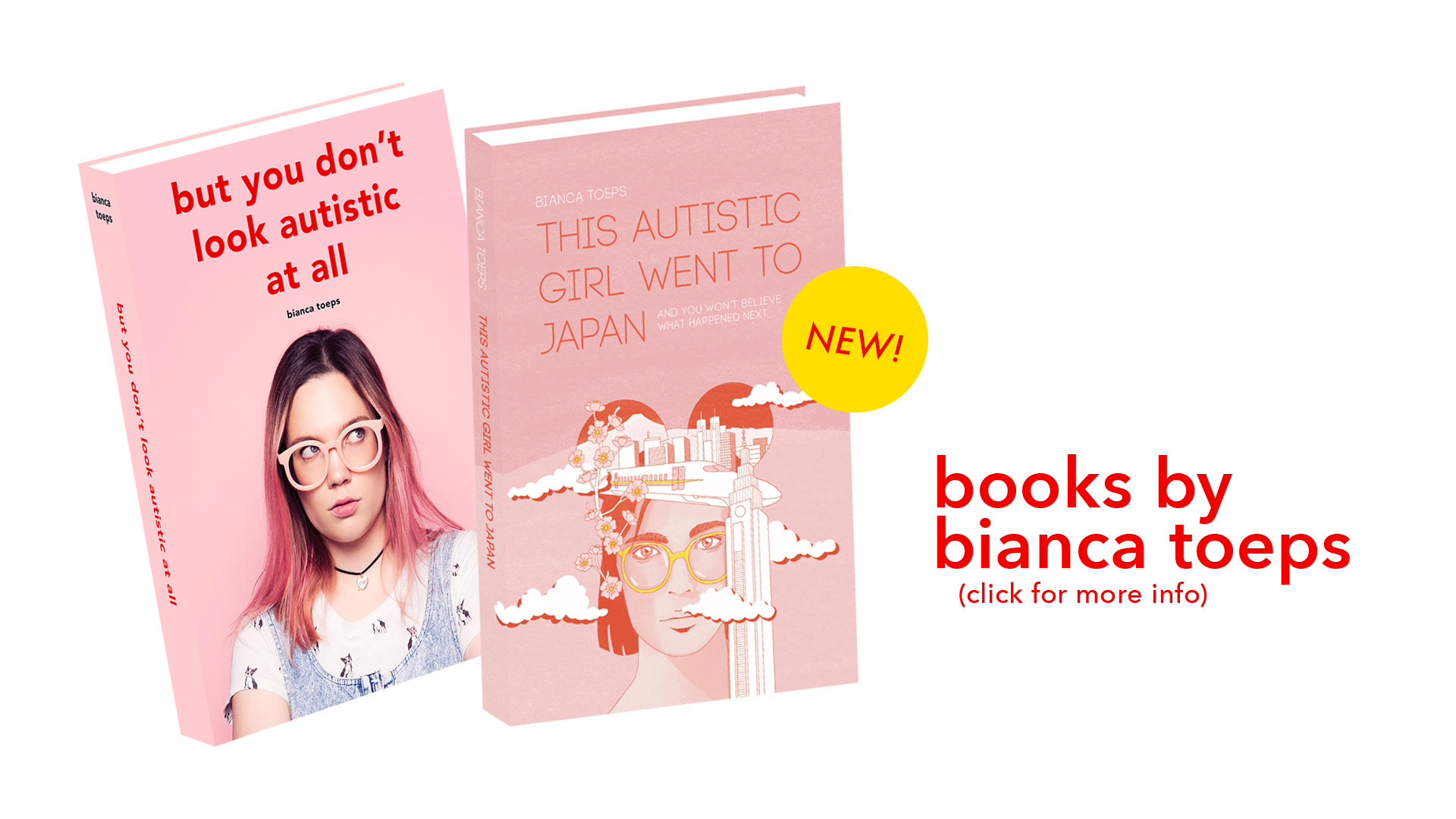In the silly piece in Trouw to which I responded with some other autistic writers, two critical “giftedness coaches” wrote that we couldn’t have autism at all, because, ‘Writers who say they have autism but write books and are in relationships are not examples of people with autism to us.’ Why their entire article made no sense we explained clearly enough in our reply, but the fact that they mentioned the very profession of being a writer made it extra funny to me. Did these two think that someone who sits like a hermit all day in their attic, in a cabin in the woods or, in my case, at the foot of Mt. Fuji, crafting sentences, cannot be autistic? How…?
In fact, as an autistic person, writer is a very suitable profession for me, as is website builder and also photographer. But of course, not everyone is the same, and that gave me the idea to ask my autistic Instagram followers about their professions. A wave of responses followed, which I tried to categorize into seven themes. Thus see below, professions suitable for autistic people, according to the people on Instagram.
Something with data
Software tester, accountant, data analyst, lab assistant, programmer…. The pros: You can dive deep into the subject matter, the work is often structured, and the attention to detail that many autistic people have comes in handy here. The cons: Some of these jobs are office-based, not all offices are equally autiproof. In addition, although the stereotype is not entirely false, not every autistic person is good with numbers and/or computers.
Something in the visual arts field
Although the outdated prejudice that autistic people have a limited imagination still exists, I know many (especially female) autistic people who work as graphic designers, photographers, image editors, content creators, illustrators or something else along those lines. Almost always they do this as freelancers. The advantages of this: You can schedule your own time, and rest when needed. You can choose not to take on assignments you don’t like, and you can put a lot of yourself into your work. But of course there are drawbacks as well: tight deadlines, clients who don’t stick to the schedule, having to chase after your own money, and no one to put you to work, resulting in procrastination. Some creative jobs, such as photography, have spikes when you actually have to deal with a lot of people, but that’s not daily.
Something with language
Maybe there is a bias because I work in this industry myself, but many of my Instagram friends do something with language: they are writers, translators, journalists or editors. The benefits: it’s often nicer to put your thoughts on paper than to speak them. As an editor, you have to spot mistakes, something where that eye for detail comes in handy again. The texts you write sometimes relate to your own interests. The disadvantages: you can suffer from writer’s block, your writings can evoke certain reactions from the general public, and if you work independently you have the same disadvantages as mentioned earlier for the visual professions. If you work for a boss, you may have to deal with noisy editorial floors and office politics.
Something you can do on your own
Are you completely done with backstabbing colleagues and office cubicles? Then you can also choose a job that you do entirely or mostly on your own. Forest ranger, night guard, delivery driver, cleaner, farmer…. From highly skilled to practically skilled working with your hands, there are so many professions you could do if you love your peace and quiet. But the advantage of this profession can be a disadvantage at the same time: You’re on your own.
Something with a clear structure
The occupations on this list may surprise you, because they don’t necessarily seem very autiproof at first: Store assistant in a toy store, supermarket or hardware store, teacher, pharmacist(s assistant), audiologist…. But these places by themselves have a clear structure in the form of class schedules, mirrored shelves or set procedures, which can be very nice for some autistic people. Of course, you have to be able to deal with customers who mess things up, noisy students and/or colleagues. Although those customers and colleagues also provide just that little bit of social contact – something autistic people can definitely need as well.
Something for the government
The IRS, the police … Government agencies often have good facilities for people with autism, provide job security, and there is often less pressure than in a commercial company. Some agencies, such as the police, even have special programs for people with autism, analyzing camera images, for example. The cons: working for the police can be emotionally intense, and I myself found my job in the IRS (in the distant past) terrifying because of the social contact with colleagues.
Something regarding your special interest
Many autistic people have a special interest, a subject they know an awful lot about or which they prefer to spend all day doing. How nice is it, to make something like that your job? Think of professions such as zookeeper at the zoo, ticket vendor in a museum, ski instructor, amusement park attendant, marble track or miniature diorama youtuber, autism coach… Of course, not all special interests translate into paid jobs, and in order to turn your hobby into your job, you also have to learn to deal with the less fun aspects of your profession. But if you manage to do that, you will have the greatest job in the world!
Note: After my previous post, about seven questions that could help when an autistic person is stuck in his or her thoughts, I got a number of responses from people who said they would rather jump off a flat than answer the questions. Now I didn’t claim that all the tips should work for everyone, and the same is true of this post. Not all occupations in this list are suitable for everyone. Hopefully this will save you the trouble of typing another angry response.
Whoa, so oldschool! An RSS feed!
Save this link in your RSS reader and follow my blog however you want it – chronological, in your mailbox, in your browser... Yes, the past is here!
https://www.toeps.nl/blog-en/feed/







